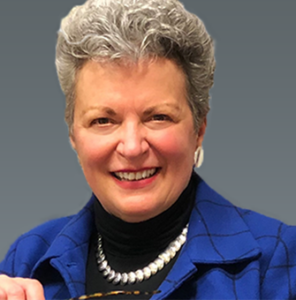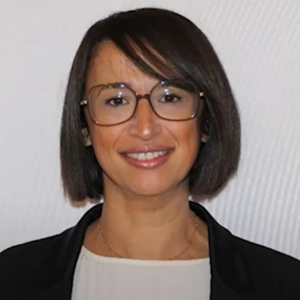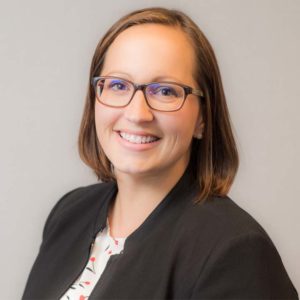- Home
- About
- About NephU
- Meet The Team
- Supporting Organizations
- Community Advisors
- Contact Us
- Diversity, Equity, & Inclusion
- IgAN
- Expert Insights
- Mechanism of Disease
- Disease Burden & Progression
- Disease Management
- HCP/Patient Dialogue
- Events
- Resource Center
- Rare Kidney Diseases (PKD, IgAN, & Others)
- Kidney Disease & Mental Health
- Kidney Disease & Comorbid Conditions
- Transplantation & Dialysis
- NephU Nutrition & The NephChefR
- Radiology Toolkit
- On Demand Webinars
- Infographics
- Podcasts
- Videos
- Request a Presentation
- Simulators
What interests you?+Help Us Enhance Your NephU ExperienceHelp Us Enhance Your NephU Experience
User experience form
Archives

Pediatric & Adolescent Autosomal Dominant Polycystic Kidney Disease
About This Event
Pediatric & Adolescent Autosomal Dominant Polycystic Kidney Disease
Background
Autosomal Dominant Polycystic Kidney Disease (ADPKD) is the most common life-threatening hereditary kidney disease, and is characterized by relentless renal cyst formation, kidney enlargement, and kidney function decline.1
Did You Know?
- Although clinical manifestations typically do not present until adulthood, between 2–5% of individuals with ADPKD are diagnosed and show signs & symptoms in childhood.1
Why Attend This Webinar?
This webinar aims to review the highly variable clinical course of Autosomal Dominant Polycystic Kidney Disease (ADPKD), including the spectrum of pediatric and adolescent ADPKD presentation.
What You Will Learn
- Although kidney failure occurs in 50% of patients with ADPKD by the sixth decade of life, renal cyst formation and expansion begins early in life, frequently in utero. Therefore, ADPKD should no longer be considered an adult-onset disease.1
- Evidence is growing that renal injury starts with the formation of the first renal cysts, however a consensus for the management of children at-risk for or diagnosed with ADPKD is lacking.1
- This webinar aims to highlight the prevalence of ADPKD in the pediatric population, review the broad spectrum of clinical presentation in a pediatric or adolescent population, and discuss the potential unmet needs in pediatric ADPKD care.
References:
- De Rechter S, et al. Frontiers in Pediatrics (2017) https://doi.org/10.3389/fped.2017.00272. Accessed June 2022.
Featuring

Lisa M. Guay-Woodford, MD
McGehee Joyce Professor of PediatricsChildren’s National Hospital and the George Washington University School of Medicine & Health Sciences*
Lisa M. Guay-Woodford, MD, is the McGehee Joyce Professor of Pediatrics at Children’s National Hospital and the George Washington University School of Medicine & Health Sciences. She also serves as the Associate Vice President for Clinical and Translational Research at George Washington.
Dr Guay-Woodford completed her residency and fellowship training at Boston Children’s Hospital. She began her impressive career at the University of Alabama at Birmingham (UAB) where she established the UAB Hepato-Renal Fibrocystic Disease Research and Translational Core Center and was the founding Director of the UAB Center for Clinical and Translational Science, funded by the National Institutes of Health (NIH) Clinical and Translational Science Award (CTSA) program. Dr Guay-Woodford continued her accomplishments at Children’s National and George Washington University School of Medicine & Health Sciences. She is the Richard L. Hudson Professor of Pediatrics, Director of the Clinical and Translational Science Institute, and the Director of the Center for Translational Research at Children’s National.
Throughout her distinguished career, Dr Guay-Woodford has become an internationally recognized pediatric nephrologist with a research program focused on identifying clinical and genetic factors involved in the pathogenesis of inherited renal disorders, most notably autosomal recessive polycystic kidney disease (ARPKD). For her contributions to the field, she was awarded the Lillian Jean Kaplan International Prize for Advancement in the Understanding of Polycystic Kidney Disease, given by the Polycystic Kidney Disease Foundation and the International Society of Nephrology.
Beyond her established roles, Dr Guay-Woodford has also directed national and international collaborative research groups, including: President of the Society for Pediatric Research, Councilor for the International Pediatric Nephrology Association, Chair of the NIH Cellular and Molecular Biology of the Kidney Study Section, Board of Trustee member for the Polycystic Kidney Disease Foundation, and Board member for the Association of Clinical and Translational Science. She currently serves as a member of the NIDDK Advisory Council.

Djalila Mekahli, MD, PhD
Professor and Pediatric NephrologistDepartment of Pediatric Nephrology and Organ Transplantation at the University Hospitals Leuven in Belgium*
Djalila Mekahli, MD, PhD is a Professor and Pediatric Nephrologist in the Department of Pediatric Nephrology and Organ Transplantation at the University Hospitals Leuven in Belgium. Dr Mekahli conducted her training in pediatric nephrology and transplantation at the University Hospital of Lyon in France and Great Ormond Street Hospital in London, UK. She completed her PhD in Biomedical Sciences, focusing on “Autosomal Polycystic Kidney Disease from bedside to bench and back” at the KU Leuven’s Doctoral School of Molecular Medicine in Belgium.
Currently Dr Mekahli is the Head of the Pediatric Residency Program and the Head of the PKD Research Group at UZ Leuven. She leads the pediatric ADPKD clinic which includes a large cohort of almost 100 children. Impressively, Dr Mekahli is the Principal Investigator of the ADPedKD Registry, a global online platform to better understand the management of children with Autosomal Dominant Polycystic Kidney Disease. Through her research efforts, she has also initiated a longitudinal biobank of pediatric ADPKD patients and is very active in clinical and biological research aiming to identify early biomarkers for ADPKD. Dr Mekahli is also the co-chair of the European Reference Network for Rare Kidney Disease (ERKNet) working group for Autosomal Dominant Structural Kidney Disorders.
Moderator

Jill A. Green, PhD
Nephrology Medical Science DirectorOtsuka Pharmaceutical Development & Commercialization, Inc.*
Jill A Green, PhD, is a Medical Science Director in the nephrology division at Otsuka Pharmaceutical Development & Commercialization, Inc. Dr Green received her PhD in biomedical sciences, with a specialization in biochemical and molecular basis of disease. She went on to hold a research scientist role at The James Comprehensive Cancer Center at The Ohio State University, specializing in oncology pre-clinical research before taking a position as a Regulatory Compliance Officer where she managed thoracic oncology clinical trials at The James Cancer Hospital.
Dr Green has been a proud member of the PKD Foundation – Columbus, Ohio chapter for over 12 years where she has been active in fundraising and advocacy efforts.*Drs Guay-Woodford and Mekahli are paid consultants of Otsuka Pharmaceutical Development & Commercialization, Inc. (OPDC). Dr Green is an employee of OPDC.
If you would like to register for the 9:00 pm to 10:00 pm EDT broadcast, please click below:
Registration
Related Resources
Join Today for Instant Access to all NephU Offerings.
Membership is free!
Join NephU today at no cost to register for this event and access to other premium content.
- The NephU Community is collaborating to improve care and the future outcomes for individuals with kidney disease and other related conditions.
- Quickly learn more about the topics that interest you.
- Access our library of on-demand kidney health resources
- Gain key insights from industry experts & though leaders.
NephU is supported by Otsuka Pharmaceutical Development & Commercialization, Inc. (OPDC) and Otsuka America Pharmaceutical, Inc. (OAPI) - committed supporters of the kidney health community. The information provided through NephU is intended for the educational benefit of health care professionals and others who support care for those with kidney disease and other related conditions. It is not intended as, nor is it a substitute for, medical care, advice, or professional diagnosis. Health care professionals should use their independent medical judgement when reviewing NephU’s educational resources. Users seeking medical advice should consult with a health care professional. No CME or CEU credits are available through any of the resources provided by NephU. Some of the contributors may be paid consultants of OPDC and/or OAPI.©2025 Otsuka Pharmaceutical Development & Commercialization, Inc. All rights reserved.

